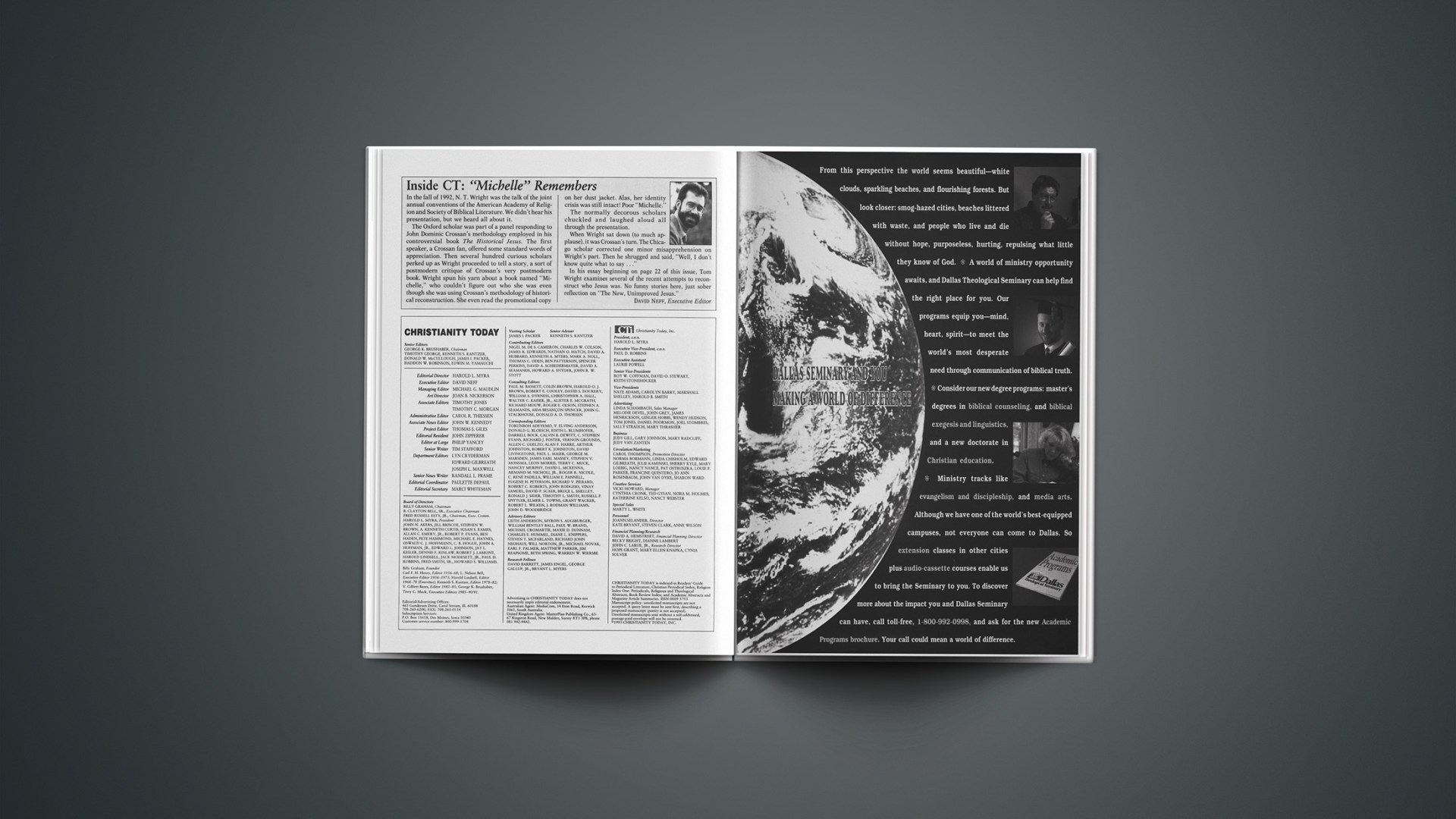In the fall of 1992, N. T. Wright was the talk of the joint annual conventions of the American Academy of Religion and Society of Biblical Literature. We didn’t hear his presentation, but we heard all about it.
The Oxford scholar was part of a panel responding to John Dominic Crossan’s methodology employed in his controversial book The Historical Jesus. The first speaker, a Crossan fan, offered some standard words of appreciation. Then several hundred curious scholars perked up as Wright proceeded to tell a story, a sort of postmodern critique of Crossan’s very postmodern book. Wright spun his yarn about a book named “Michelle,” who couldn’t figure out who she was even though she was using Crossan’s methodology of historical reconstruction. She even read the promotional copy on her dust jacket. Alas, her identity crisis was still intact! Poor “Michelle.”
The normally decorous scholars chuckled and laughed aloud all through the presentation.
When Wright sat down (to much applause), it was Crossan’s turn. The Chicago scholar corrected one minor misapprehension on Wright’s part. Then he shrugged and said, “Well, I don’t know quite what to say …”
In his essay beginning on page 22 of this issue, Tom Wright examines several of the recent attempts to reconstruct who Jesus was. No funny stories here, just sober reflection on “The New, Unimproved Jesus.”
DAVID NEFF,Executive Editor










